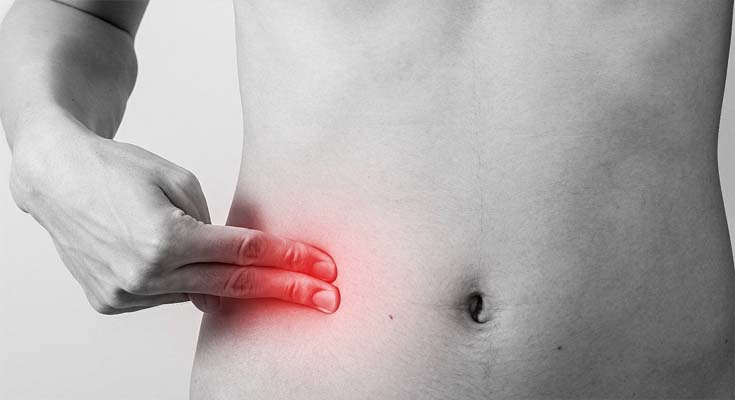


The appendix is a narrow, small, finger-shaped portion of the large intestine that is generally situated near junction of small and large intestine (Cecum) on lower right side of the abdomen.
Appendicitis
Appendicitis is a sudden inflammation of the appendix. Although the appendix does not seem to serve any purpose, it can become diseased and, if untreated, can burst, causing infection and could be even fatal.
Appendicitis occurs when the interior of the appendix becomes filled with something that causes it to swell, such as mucus, bacteria, foreign body, hard stool, or parasites. The appendix then becomes irritated and inflamed. Appendix may perforate allowing stool, mucus, and other substances to leak through and get inside the abdomen causing localized abscess or generalised infection of abdomen (peritonitis).
Symptoms of Appendicitis may includes:
The diagnosis of appendicitis begins with a through history and physical examination. Patients often have an elevated temperature, and there usually will be moderate to severe tenderness in the right lower abdomen when the doctor pushes there. If inflammation has spread to the peritoneum, there is frequently rebound tenderness. Rebound tenderness is pain that is worse when the doctor quickly releases his or her hand after gently pressing on the abdomen over the area of tenderness.
The following tests are usually used to make the diagnosis:
An appendectomy is the surgical removal of the appendix. The procedure is performed to treat appendicitis, an inflammation of the appendix caused by infection.
The appendix may be removed in one of two ways:
The laparoscopic being a minimally invasive approach has various advantages over the open technique.